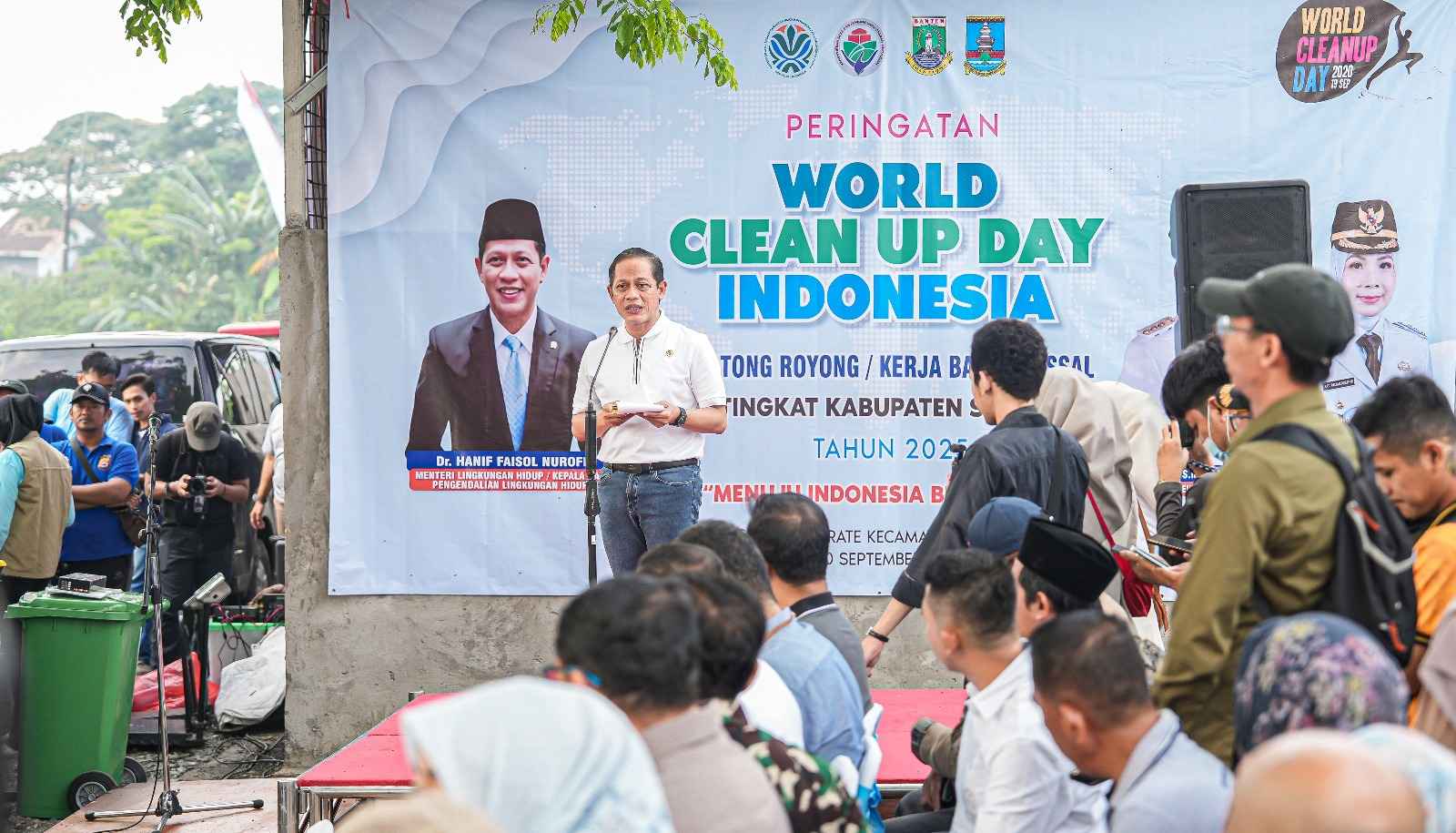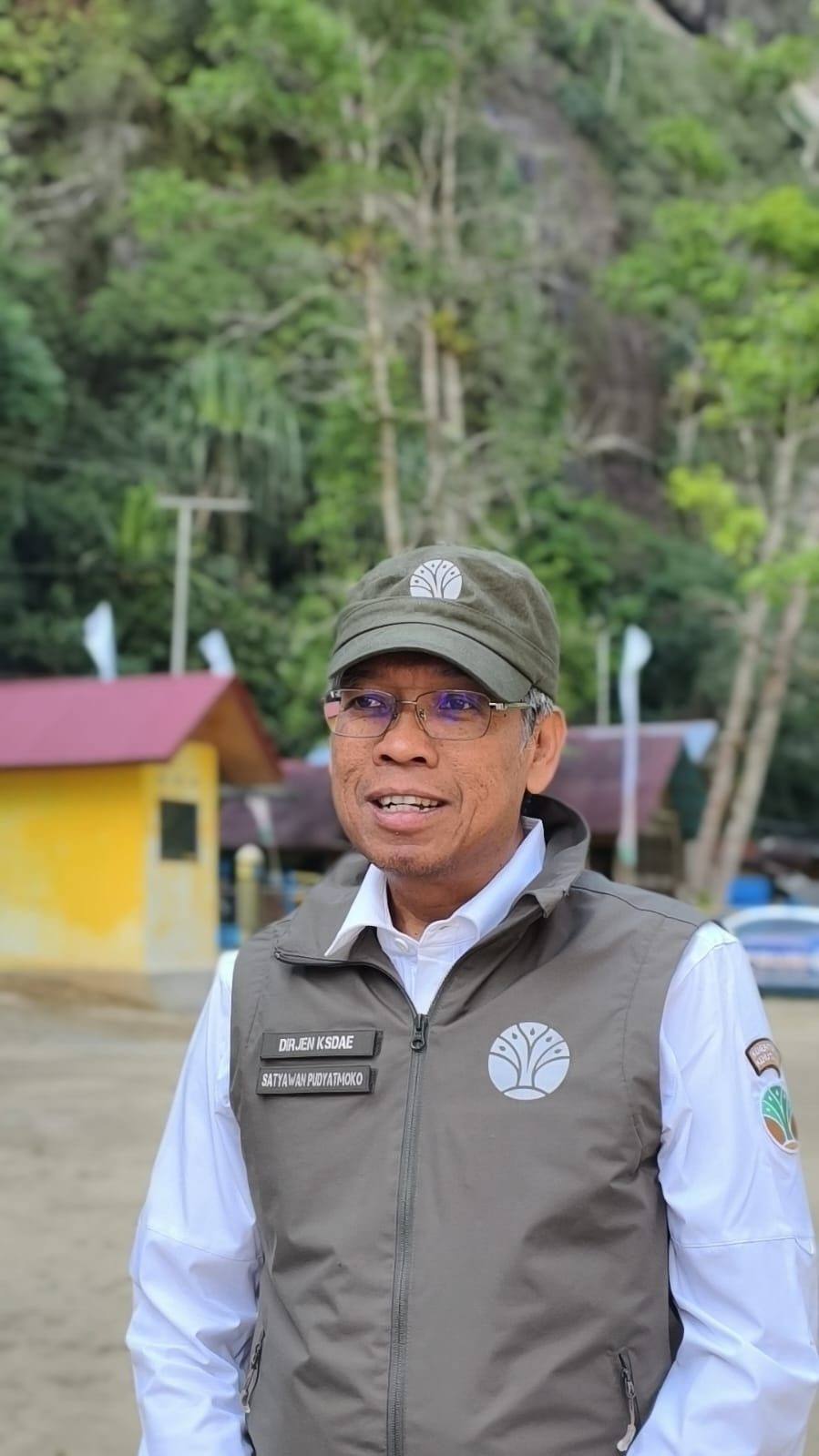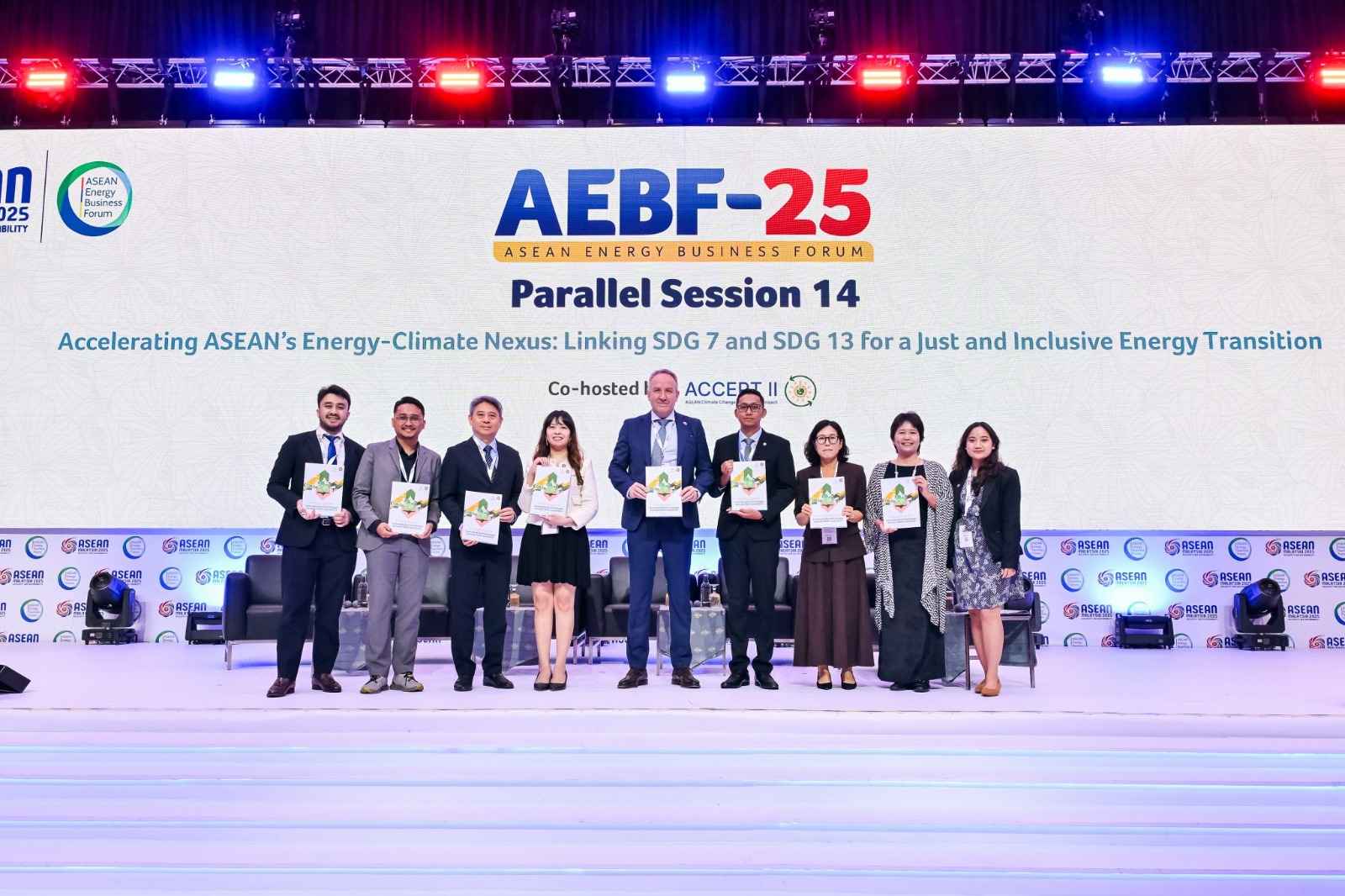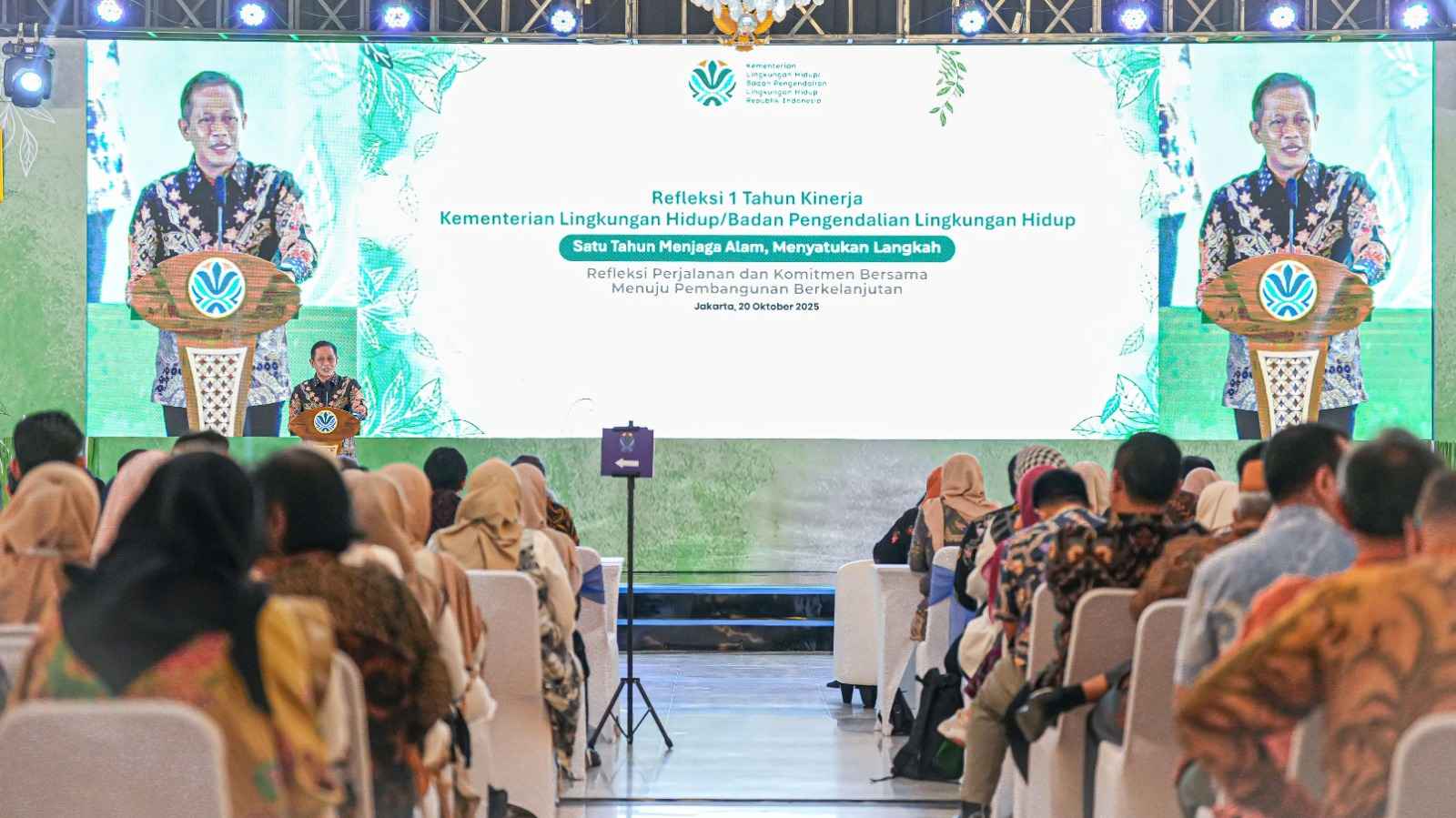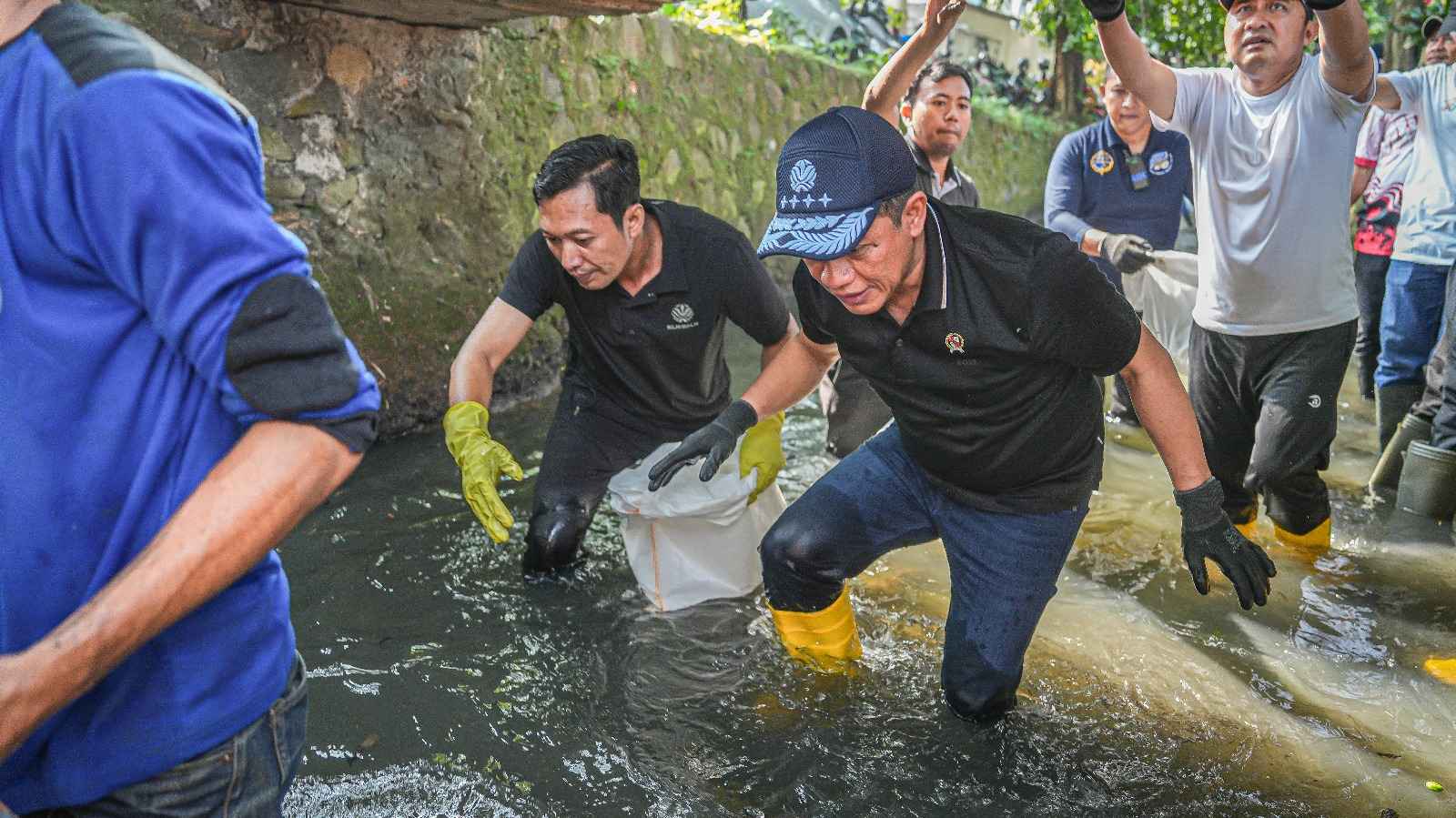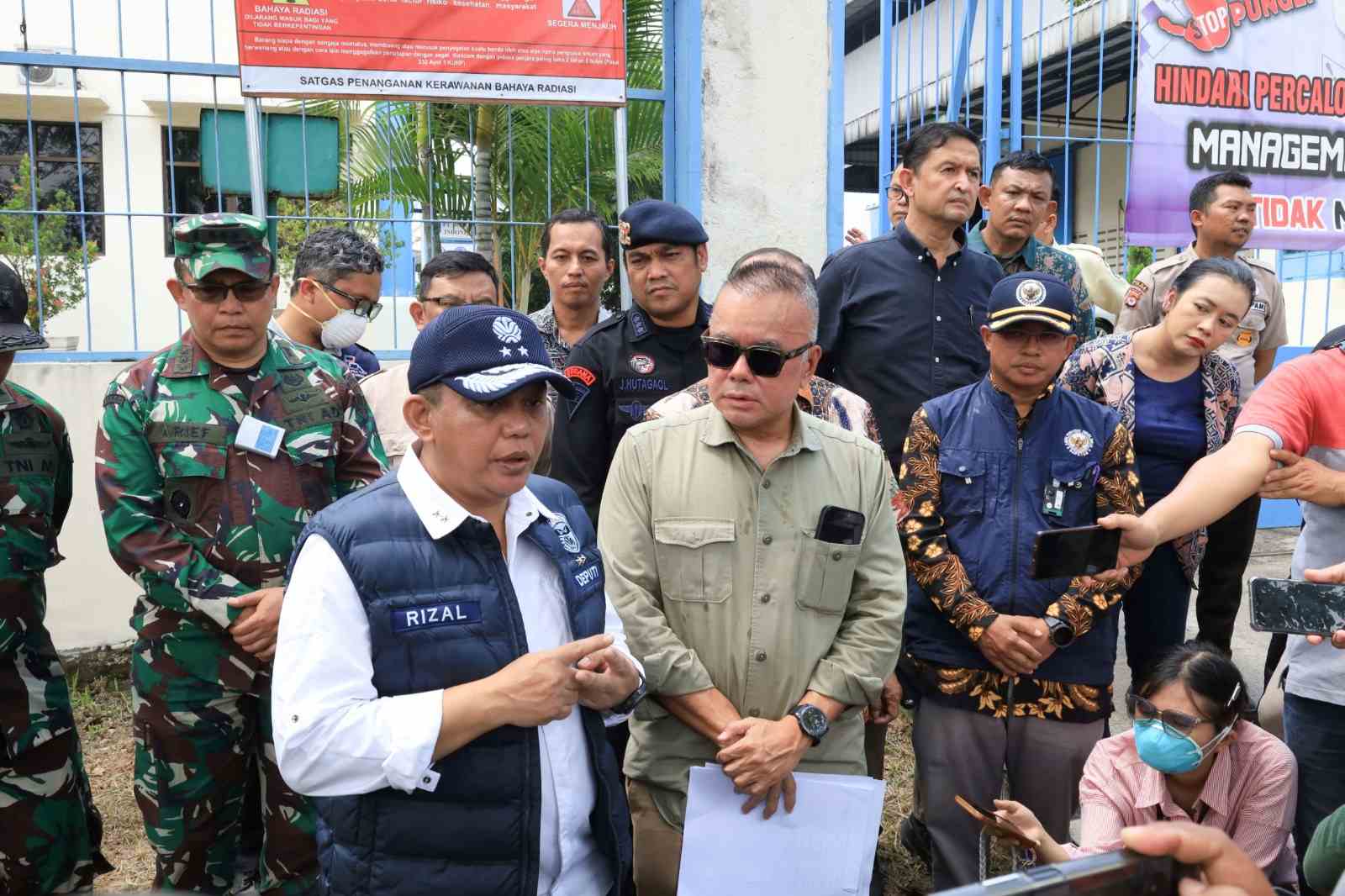Enviro News Asia, Serang – World Cleanup Day 2025, celebrated simultaneously in more than 190 countries, has become an important moment for Indonesia to affirm its new waste management strategy. Minister of Environment Hanif Faisol Nurofiq emphasized that the waste crisis can no longer be addressed solely downstream. Changing public behavior to reduce waste at its source is considered key to achieving the national waste reduction target.
“We can no longer turn a blind eye to the proliferation of illegal waste disposal sites. Local governments must act firmly, and the public must be aware not to litter carelessly. The burden on final disposal sites (TPA) is already too heavy, so waste must be reduced from the source,” Hanif stressed while leading a cleanup action in Terate Village, Kramatwatu Subdistrict, Serang Regency, Banten.
The cleanup effort involved local authorities, community groups, students, university students, and residents. Together, they cleared piles of illegal waste that had long been a public complaint. The presence of the Environment Minister on site served as a moral boost, underscoring that waste management is a cross-sector collective movement, not merely the government’s responsibility.
Hanif underlined that World Cleanup Day is not just about picking up trash for a day, but a moment to build collective awareness. “From simple actions like sorting waste at home, the impact can be significant for environmental sustainability,” he said.
The Ministry of Environment continues to promote circular economy practices, producer responsibility through Extended Producer Responsibility (EPR), and restrictions on single-use plastics. Proper waste management starting at home is expected to ease the burden on landfills, create healthier environments, and provide tangible benefits for communities.
Through this World Cleanup Day 2025 commemoration, the government reaffirmed its ambitious target: reducing marine plastic waste by up to 70 percent by the end of the year. The cleanup in Serang demonstrates that major change begins with small steps on the ground.
“Cleanup movements must not stop after a single day. They must become a shared habit to ensure a healthy and sustainable environment for future generations,” Hanif concluded. (*)




